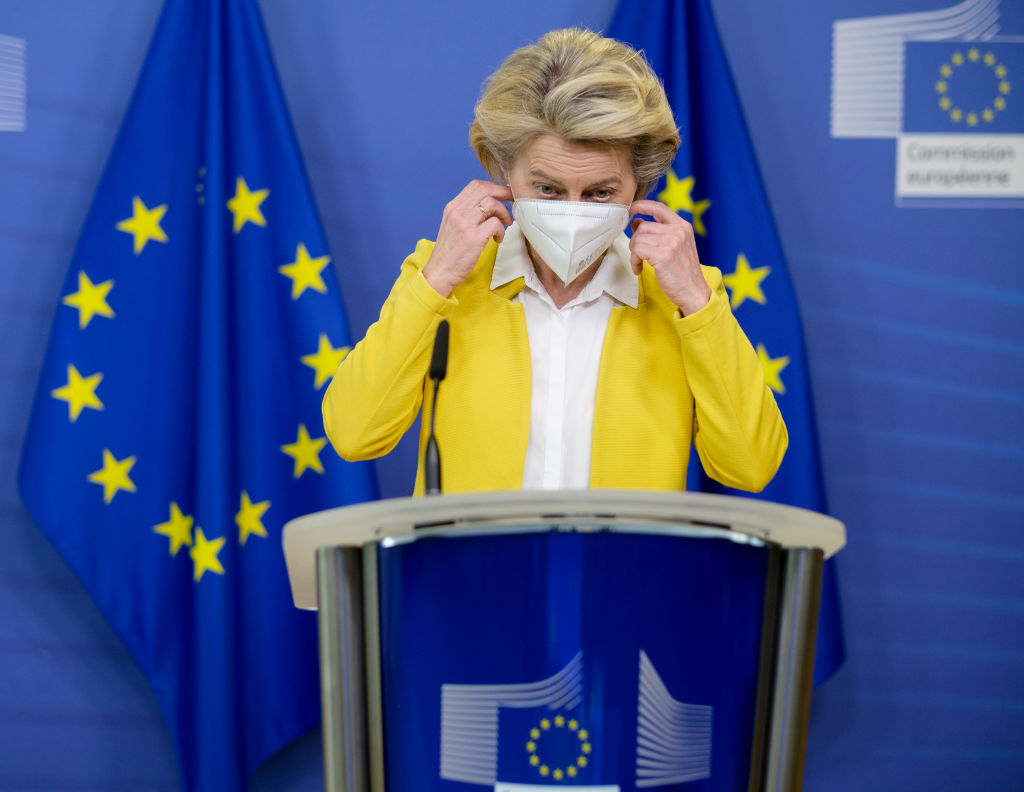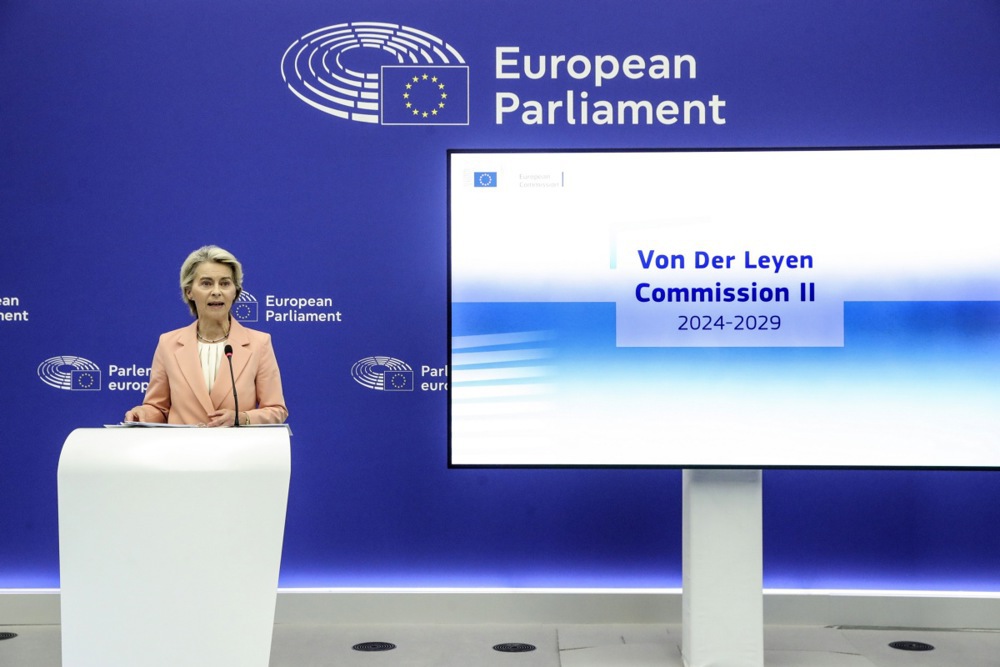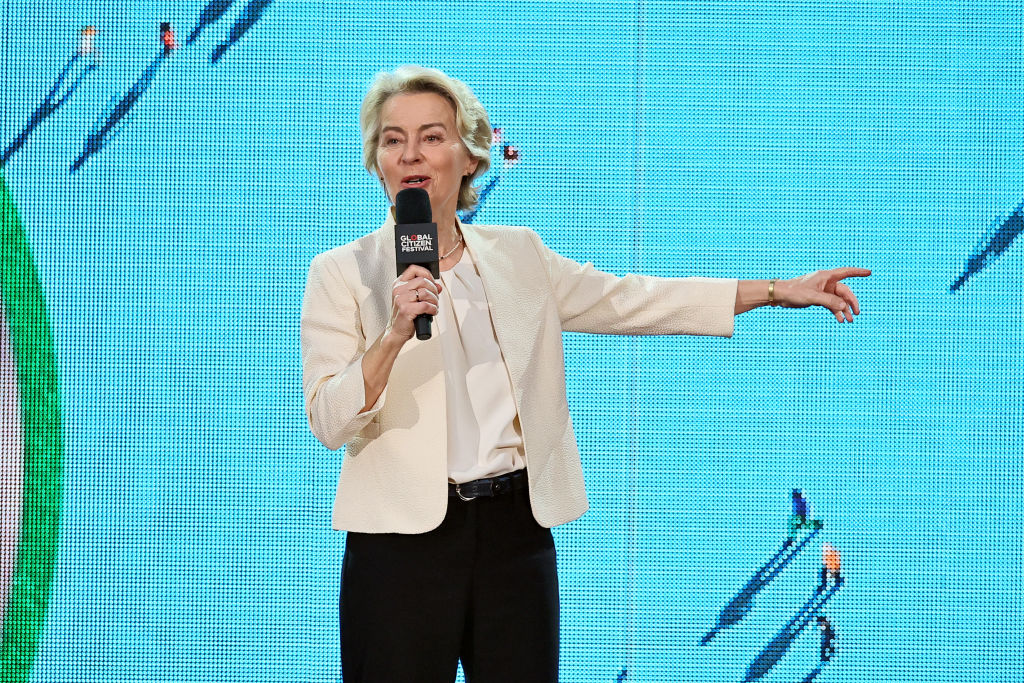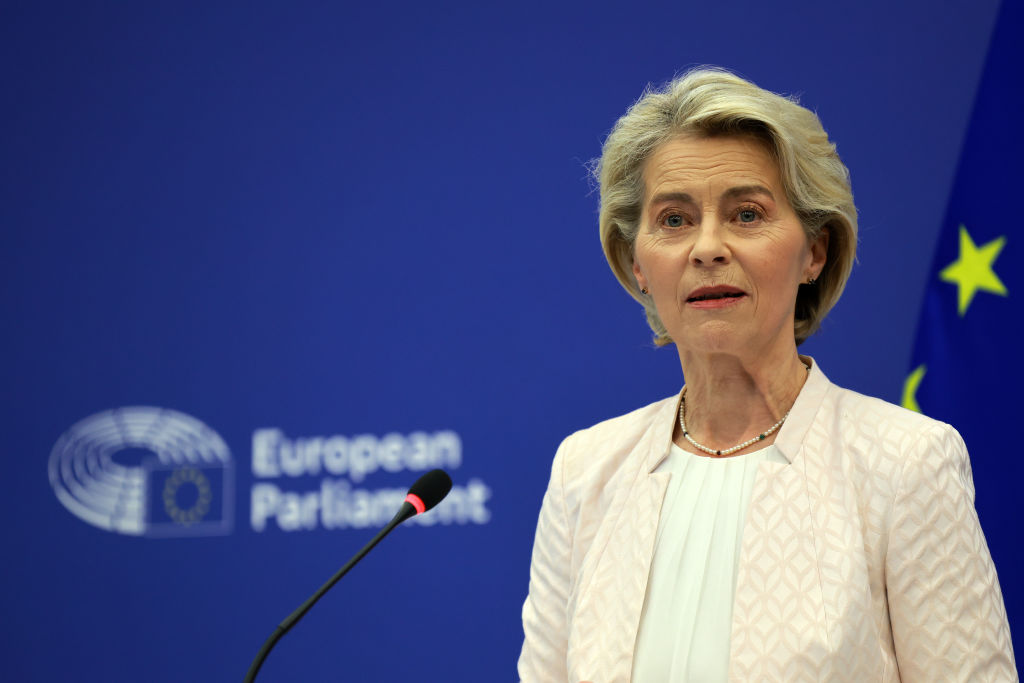The European General Court has criticised that European Commission President Ursula von der Leyen for refusing to disclose text messages exchanged with Pfizer CEO Albert Bourla, marking a blow to the Commission’s transparency credentials.
The verdict on May 14 confirms accusations of maladministration and document concealment concerning contracts worth a reported €35 billion — one of the EU’s largest-ever procurement deals.
At the centre of the case is von der Leyen’s refusal to release private messages about key elements of the EU’s vaccine procurement strategy. Journalists repeatedly requested to see details.
The Commission had argued that the messages did not exist, but the Court rejected that claim, describing the Commission’s explanations as unclear, inconsistent, and based on assumptions.
Initially, the Brussels bureaucracy bought 300 million vaccine doses from Pfizer.
The Court highlighted the EC’s lack of transparency.
“The purpose of the Access to Documents Regulation is to give the fullest possible effect to the public’s right of access to documents held by EU institutions. All documents of the institutions should be accessible to the public,” the court said.
Following the ruling, the New York Times, which took the EC to court, told Brussels Signal that the verdict was a victory for “accountability in the European Union”.
“It sends a powerful message that ephemeral communications are not beyond the reach of public scrutiny. The court recognised the European Commission’s mishandling of this request and made clear that officials have an obligation to retain and produce relevant records, including text messages,” they said.
“We brought this case because European citizens deserve to understand how their leaders operate and how taxpayer money is spent,” they added.
This is not the first time the Commission has been found guilty of withholding key information related to vaccine procurement.
In a separate ruling from July 2024, the EU’s General Court found that the Commission unlawfully withheld certain details of its vaccine contracts.
Former European Ombudsman Emily O’Reilly labelled the failure to disclose the text messages as a case of “maladministration.”
The ruling from the EU Court is a political setback for the President of the European Commission, reinforcing criticism that the EC is an opaque and highly centralised organisation.
Following the ruling, the Left group in the European Parliament said that opacity at the EC level amounted to “corruption”.
“The opacity of the European Commission President’s dealings with Pfizer amounts to corruption at the highest levels of the European institutions,” they said.
They called for the establishment of an independent ethics body and concrete measures to counter the Commission President’s tendency towards secrecy and unilateral decision-making.
Manon Aubry, co-President of the Left, said that this court decision is “a victory for transparency within EU institutions”.
Former right-wing Dutch MEP Rob Roos, who has tried to take the EC to court, pointed out that the ruling does not actually force the release of the text messages. In a statement on X, he called out what double standard in EU transparency laws. He criticised how the EU allowed foreign media to challenge secrecy while blocking its own lawmakers and citizens from doing the same.
“My case as an MEP was ruled inadmissible, while a foreign newspaper was accepted”, he said.
Right-wing and non-affiliated members of the European Parliament have pushed for the creation of a committee of inquiry into corruption and accountability within EU institutions.
“The Commission is taking note of today’s decision by the General Court on an access to documents request. We will now closely study the General Court’s decision and decide on next steps,” the Commission said in a statement.
A coalition of MEPs has secured the 180 signatures required to trigger a vote on the creation of a new committee to investigate corruption and accountability within the EU’s institutions. https://t.co/HzEyb3hvSv
— Brussels Signal (@brusselssignal) May 8, 2025





